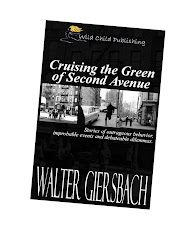I was taken aback when I learned three of the top five best-selling novels in Japan were keitai shousetsu—novels downloaded to cell phones with chapters of just 70 to 100 words. The days of 5,000-word stories in Collier’s are only dimly remembered. Playboy is known for its fiction (who looks at the photos?), but that magazine is rarely displayed outside of Borders or Barnes & Noble.
The short writing we see today is defined by my e-mail pal Brian Huggett. His Short Humour Site (http://www.short-humour.org.uk) offers 500-or-fewer-words stories to meet today’s rush-hour needs “between stations on the metro, during lovemaking, during lovemaking between stations on the metro, during free-fall skydiving.” Truly, this is reading on the run. (Disclosure: Brian has carried half a dozen of my pieces.)
How short can you go? Flash (fewer than 1,000 words), drabble (exactly 100 words, nano (300 to 500 words, depending), dribble (50 words), the 55er (yes, just 55 words), one-sentence stories and six worders. Yes, there are online sites, contests and paying publications that champion this kind of brevity. For a deeper look into a lesser form of writing, see my comments at Flash Fiction Chronicles (http://www.everydayfiction.com/flashfictionblog/) by scrolling down to Nov. 30.
Can you write “flash”? It’s tough. It was Blaise Pascal who famously stated, “I didn’t have time to write a short letter, so I wrote a long one instead.” There. Glad I got that off my chest.
Thursday, December 10, 2009
Subscribe to:
Post Comments (Atom)



No comments:
Post a Comment